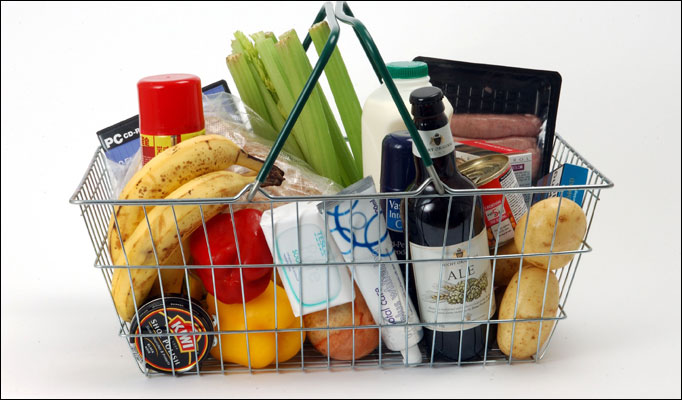

LOCAL RELATIONAL ECONOMY
A group of families fostering essential-service and mutual-aid among each other
FAMILIES FOR LIVELIHOOD SOLIDARITY
We’re a group of families fostering essential-service and mutual-aid among each other, retail outlets, restaurants, corporations & food producing lands. By investing buying power in local distributors of essential goods and services, first through this petition, then in cooperation between stakeholders, we develop communication links for meeting our needs as well as developing efficiencies and nurturing essential sustainable systems. Join and empower families in your own neighbourhood.
INVESTED INTEREST
Customers contribute to store & system success through informed buying of goods\services, communi-cating interests through Consumer Association representatives, planning with store management & in turn the whole food system’s: Founders, Workers, Suppliers, wholesalers, farmers, transformers, retail, truckers, packagers, etc. Local store buying saves the system & family transport expenses. Petitions compile family / household representative name, address, telephone, email & store preferences.
FOOD SECURITY?
While consumers want reliable supply, we’re attracted & intrigued momentarily through advertising then buy nutritionally denatured products. Few commit or invest locally in essential services. Fickle buying engenders enormous systematic losses in farms, transport, transformation & warehousing as well as fresh perishables. Complex synthetic colors, hormones, preservatives, salt, texture agents & pesticides become the norm for packaged foods. We eat artificial processed foods without satisfaction, becoming sick on our own watch. Petitions help us recognise, organise and empower our purchase patterns.
RELATIONAL ‘ECONOMY’ (derived from (>) the Greek meaning (=) ‘management of a household’)
How can we meet our essential-service needs? or recapture our local ‘economies’? ‘Indigenous’ ( > L = ‘self-generating’) heritage worldwide draws on intentional family and community collaborative planning to foster complementary livelihood relationships of engaged individuals. ‘Community’ (>L ‘com’ = ‘together’ + ‘munus’ = ‘gift or service’) refers to ancient capital accounting practices for diverse citizen municipal contributions. Consumers form relationships through Petitions of support & Human Resource Catalogues to join their buying & labour power with food store: Founders, Workers & Suppliers.
GIVING AND RECEIVING
‘Indigenous’ (>L = ‘self-generating’) holistic time-based accounting as a universal common denominator empowers local resident & business stakeholders to systematically give & receive. ‘Exogenous’ ( >L = ‘other generated’) money-only economies, rife with violence & exploitation, destroy indigenous roots through one-way> linear systems fragmenting integrated livelihood cycles into incomplete segments such as economics, religion, security, politics, health, diet etc. Exogenous dogma distracts adherents to “be good” and “give” to those less fortunate without empowering relations of reciprocal “receiving”.
APPROPRIATION OF WORLD RESOURCES
1 st world nuclear-nation military advantaged supply networks control land, resources & exchange-price without check or balance in energy and food producing 3 rd world countries. Indigenous forest farmers are forced to cut down highly productive orchards in order to accommodate expensive exogenous short-term field, grain, meat and commodity production. We impose “ lowest price” on others yet expect high salaries for ourselves. Extractive economies take precedence over ecological productivity. The present lack of committed economic relationships is expensive for the earth and everyone on it. Consumers joined in Associations can ‘vote with every dollar we spend’ for a fair world for everyone.
POINT OF SALE SYSTEMS
Computer programs use Bar-Codes for recognising frequent buyers. Families register and invest in local store fidelity programs by buying shares and are issued bar-coded Consumer Support member cards. Consumers present cards at cash register scanners, which automatically recognise, account-for purchases and accord percentages as share investment recognition. The more each client invests, the higher their rate of accreditation, shares earned and discount % they may withdraw. Given average Canadian individual food purchases of 2500$ and families at 7500$ per year, a 3% family discount amounts to 225$/ year in savings + share interest redeemable in products. Excellent investment!
WORD-OF-MOUTH ADVERTISING
Stores arrange with ‘Consumer Support’ Associations for particular investment rates, rebate and discount levels. Members save stores advertising dollars (2 – 9 %of sales) by word of mouth to family and friends. Purchasing fidelity is predictable over days, weeks, months and years. Stores are able to buy equipment, food and develop contracts with suppliers to serve identifiable customers. Through stores, customers invest in their food system. Growers and transformers can plan food and equipment purchasing for invested committed clients years and decades ahead bringing savings of 5 – 25 %.
STAKEHOLDER SUPPORT ASSOCIATIONS
A Consumer Support Association communicates with other store and system stakeholders, each provided with specific investment pathways by which to contribute their gifts and services. Each path is different yet complementary to a whole economic cycle. Individuals may participate in a number of stakeholder Associations and thereby recognise each other’s contributions and communicate their own:
A Catalogue of Human Resources engages all stakeholders, with skills, goods and services as well as buying power, to invest and exchange through a website within Support Associations, the corporation and among each other. Member accounts accredit good or service provision and debit consumption at market rates. Human resource or time-based accounting allows individuals to contract and contribute goods and services with share, salary and goods or services compensation. Person Hour Shares in a Time-Bank recognise member involvement and equity in a full cycle of giving and receiving.
Join :
Corporation du développement durable
9628 JEAN-MILOT, LASALLE-MONTREAL, H8R 1X9, 514-364-0599
eco-montreal@mcgill.ca